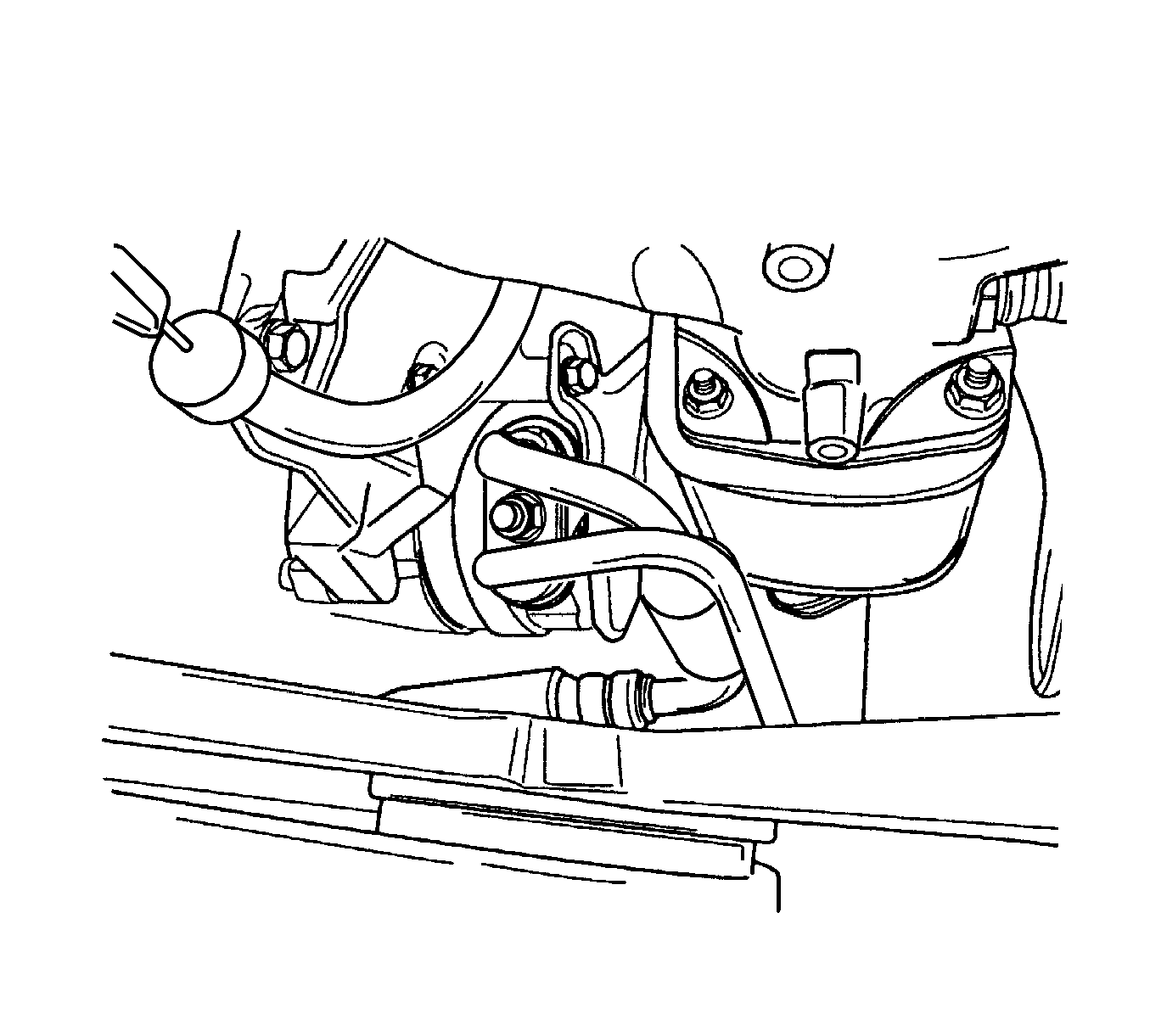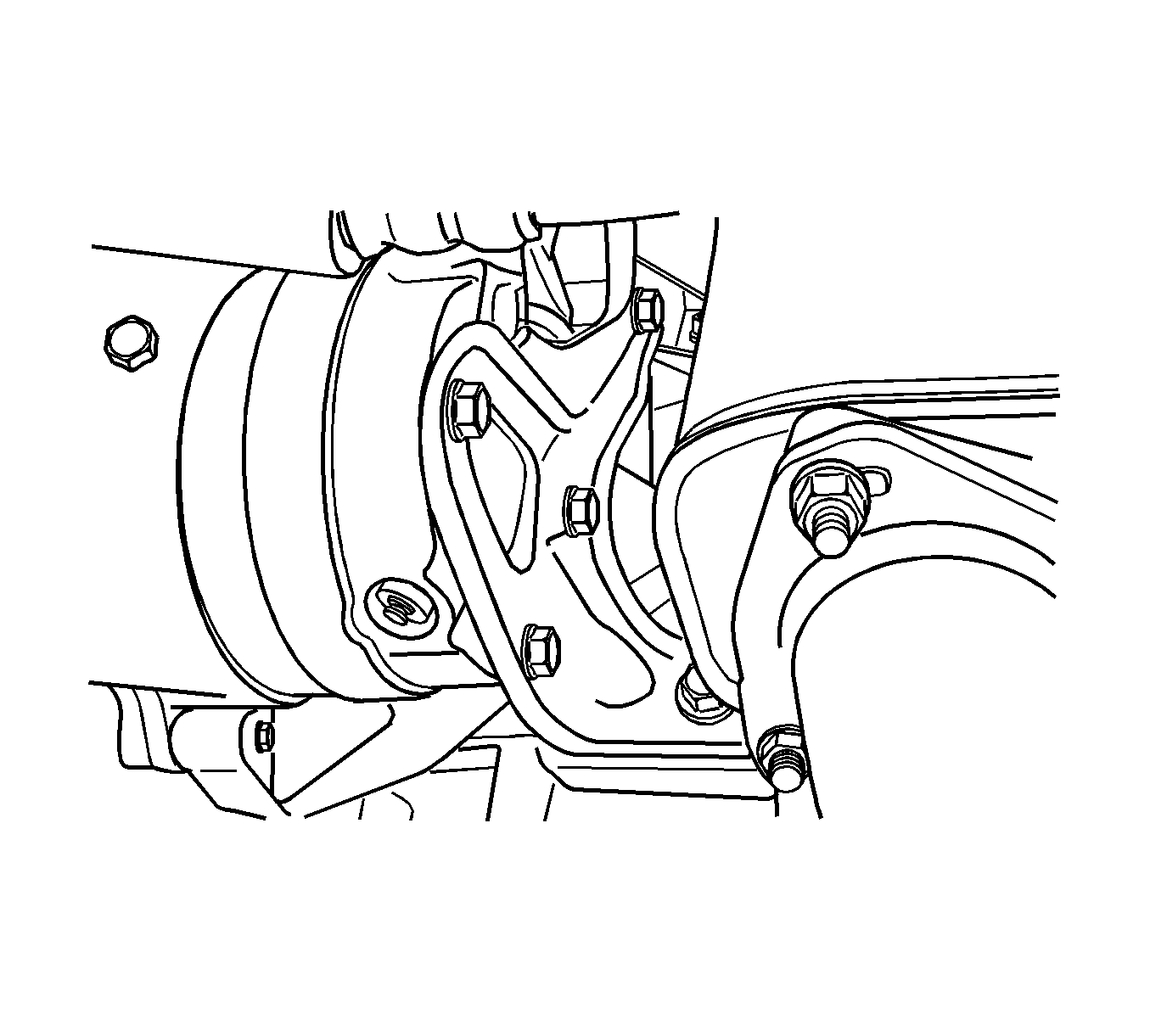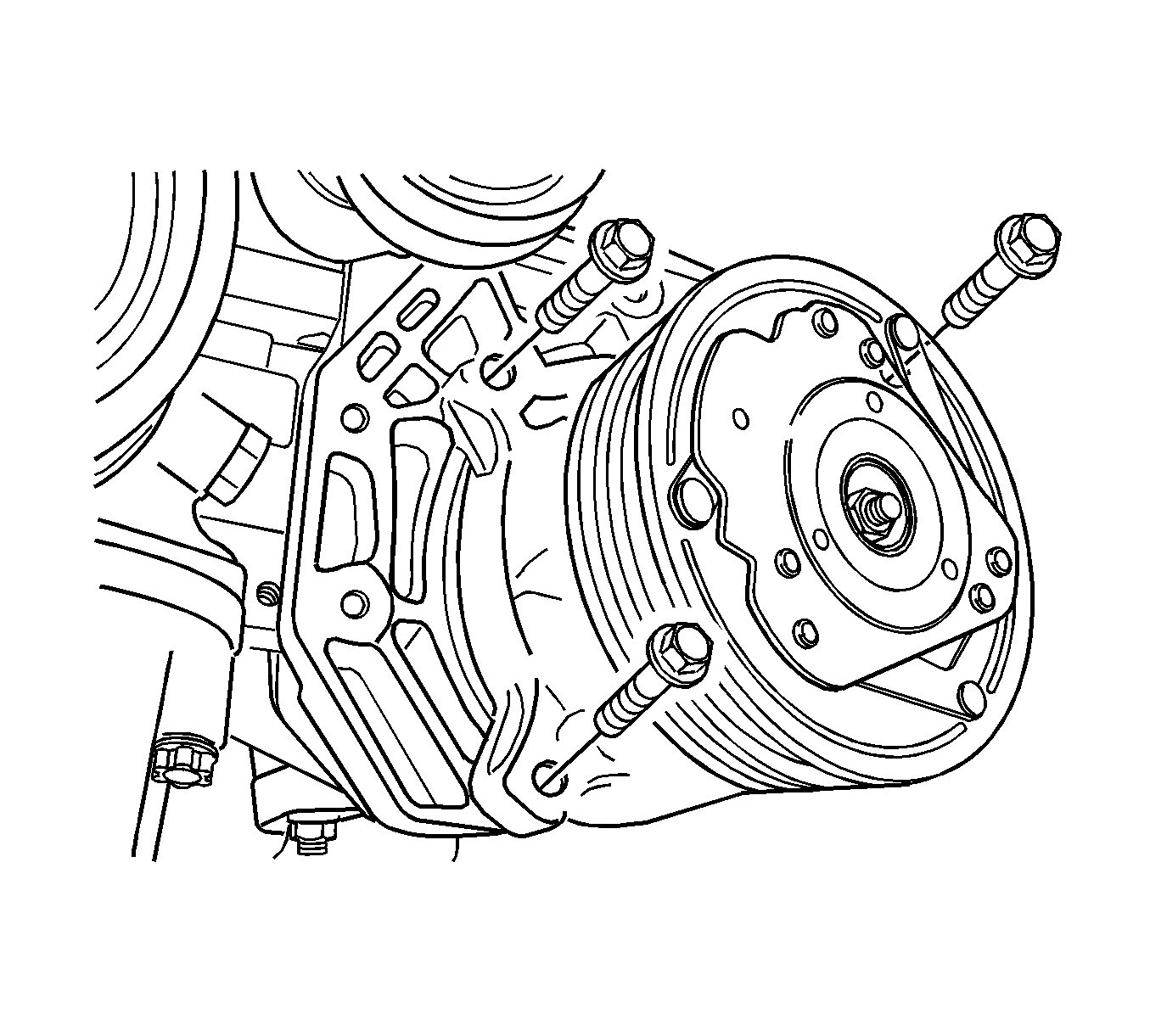For 1990-2009 cars only
Removal Procedure
- Disconnect the negative battery cable.
- Discharge and recover the refrigerant. Refer to Refrigerant Recovery and Recharging .
- Remove the discharge hose mounting nut.
- Lift the discharge hose mounting block and the suction hose from the compressor.
- Raise and suitably support the vehicle. Refer to Lifting and Jacking the Vehicle .
- Disconnect the electrical connector at the compressor.
- Remove the drive belt and the idler pulley. Refer to Power Steering Pump Belt Replacement .
- Remove the front and the rear compressor-to-bracket bolts.
- Remove the compressor.
- Drain the oil from the compressor into a container. Measure the amount of the oil that is drained. Discard the used oil.
Caution: Refer to Battery Disconnect Caution in the Preface section.


Installation Procedure
- Add oil to the new compressor. Use the exact amount of oil that you drained from the old compressor.
- Install the compressor.
- Install the compressor-to-bracket mounting bolts.
- Install the idler pulley and the serpentine accessory drive belt. Refer to Power Steering Pump Belt Replacement .
- Install new sealing washers to the suction hose and the discharge hose mounting.
- Connect the electrical connector at the compressor.
- Lower the vehicle.
- Place the suction hose into its cavity in the compressor and install the discharge hose mounting block to clamp it into place. Hold this all together while tightening the retaining nut.
- Connect the negative battery cable.
- Evacuate and recharge the A/C system. Refer to Refrigerant Recovery and Recharging .

Notice: Refer to Fastener Notice in the Preface section.
Tighten
| • | Tighten the front compressor-to-bracket mounting bolts to 35 N·m (26 lb ft). |
| • | Tighten the rear compressor-to-bracket mounting bolts to 20 N·m (15 lb ft). |

Tighten
Tighten the discharge hose connecting block-to-compressor retaining nut to 33 N·m (24 lb ft).
